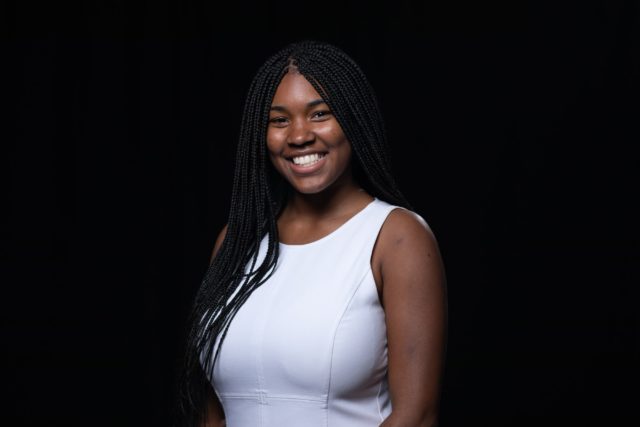By Savannah Cooper | Reporter
Whether it’s turning the scraps of food from slave owners into highly requested side dishes during the holidays; making historically neglected and underfunded neighborhoods now appealing to first-time homeowners; or taking back the power of a single, dehumanizing word and turning it into a term of endearment used frequently in chart-topping hits, black Americans have and continue to be the true gatekeepers of culture.
Black culture is dope and, rightfully so, everyone wants a part of it. But, the glaring contradictory problem is, black people are often excluded or ignored while their contributions to society are taken and manipulated into something else.
Four hundred years ago, in 1619, twenty men from Africa were brought to Jamestown, Va. Historians refer to this event as the genesis of the legal slave trade in the thirteen colonies. From that watershed moment in this nation’s history to the present day, black Americans have made leaps and bounds of progress. But, there’s still a vast gap in the fight for basic, unalienable rights that were promised to all on July 4, 1776, as this country formally declared its independence.
With slavery, Jim Crow Laws and present-day varied levels of oppression and microaggressions that all stem from the systemic racism embedded in this nation’s history, the Black community is entitled to be discontent. And, still, despite all the varied and continued forms of racism, we find new ways to rise and further culture.
The exploitation of black culture comes in many forms with little to no respect, credit or appreciation toward its curators.
When it comes to Black bodies:
Tennis icon Serena Williams has frequently been depicted as a man in political cartoons due to her naturally voluptuous physique and dominance within Grand Slam play. On the other hand, the Kardashian family — who’ve built a multi-million dollar brand on self-image — spend copious amounts of money getting fillers and injections to appear like they too have a similar natural body shape are praised for now over a decade.
When it comes to Black hair:
Giuliana Rancic of E! News said Zendaya’s dreadlocks, from the 2015 Oscars, looked like they smelled like weed, but Kylie Jenners’ dreadlocks are praised on the cover of Teen Vogue. Brittany Noble was fired as a news anchor for wearing her natural hair, while Allure published a guide teaching white women how to get an afro. As the weather breaks, many will travel to the Caribbean and get cornrows, but will turn a blind eye to the natural hair discrimination colleagues, classmates and peers experience back home.
When it comes to Black skin:
Across social media timelines, some white influencers like Emma Hallberg are capitalizing off their ability to pass as biracial since they “tan easily.” Hallberg and others reap the benefits of being perceived as a black girl, but at the sign of any racism, discrimination, ignorance or when asked point blank — they can resort back to their safe, privileged whiteness.
When it comes to The N-word:
As the number one genre in music, rap/hip-hop culture has become synonymous with popular culture thanks to the mass appeal gained during the ’90s with The Notorious B.I.G. and Tupac Shakur leading the way. With its popularity, T-shirts like Straight Outta ____ (Insert school, club or organization) and ____ world (Inspired by Travis Scott’s Astroworld) are made in bulk.
Those who create and wear such clothing also, often times, find it appropriate to say “Calling a young ni**a phone” and hide behind the poor excuse that such a phrase is a part of lyrics in a top-40 song. But, when their favorite rappers are arrested, wrongfully charged or accused, they ignore it since the likeliness of that happening to them is slim to none.
Black culture is incredible, inspiring and remarkable, especially when looking through a retrospective lens of all the pain and suffering inflicted upon black Americans since their forced arrival to this country in 1619. You can continue to appreciate it, support it and be influenced by it, but please don’t embarrass yourself and become another Rachel Dolezal. Instead, educate yourself, strike a sincere conversation with someone within the black community and find a way to respectfully celebrate and honor such a rich, diverse culture.


